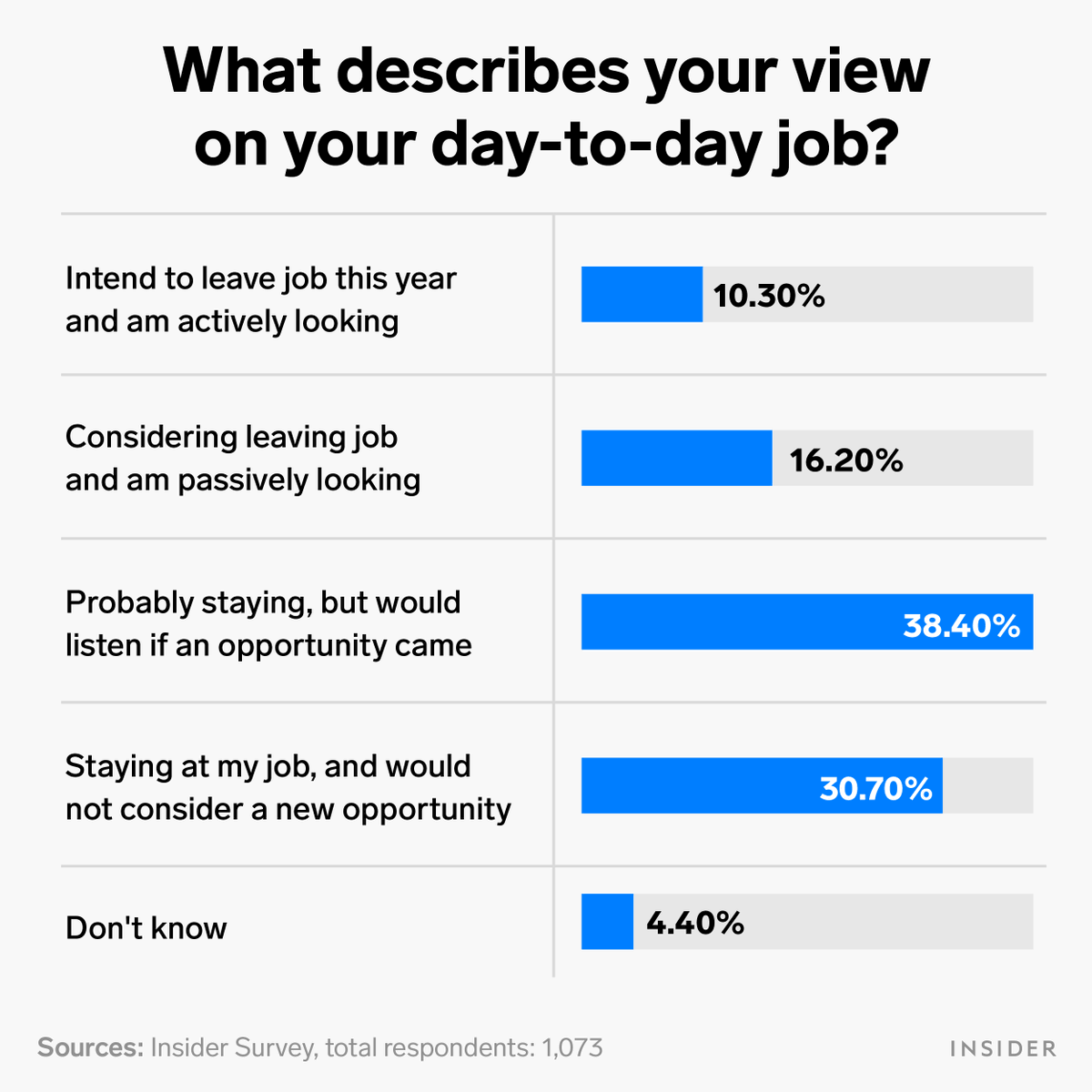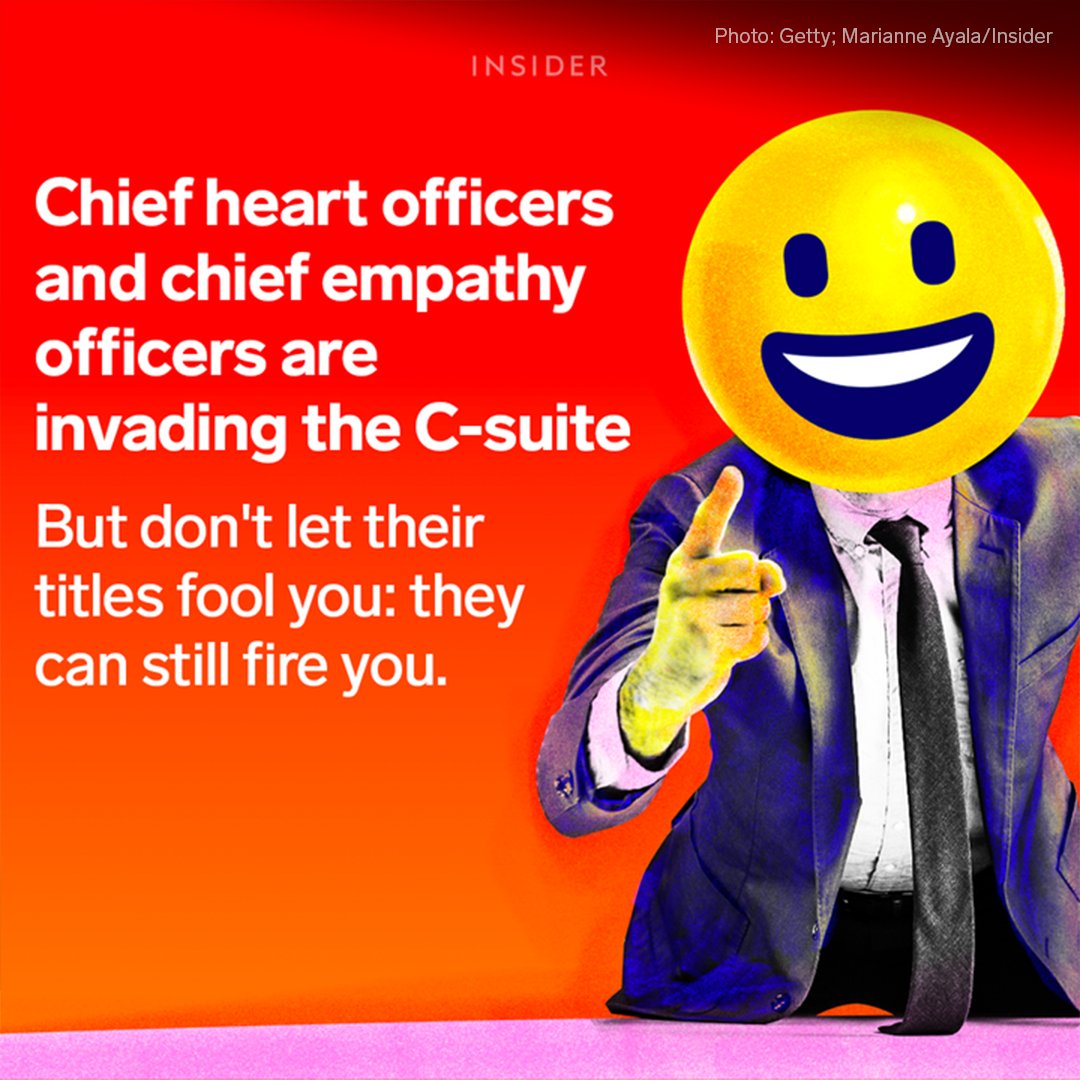Within the past year or two — especially during the later months of the COVID-19 pandemic — burnout has hit so many. If you yourself don't feel burned out, chances are you know a handful of people who are.
Here are some of the telltale signs. 👇
businessinsider.com/american-burno…
Here are some of the telltale signs. 👇
businessinsider.com/american-burno…
1️⃣: A nagging sense of exhaustion
2️⃣: Cynicism about the work they do.
3️⃣: An overwhelming feeling that nothing they do is ever good enough.
@thisisinsider wanted to know, how burned out are Americans? The answer?
Pretty burned out. 🥵
businessinsider.com/american-burno…
2️⃣: Cynicism about the work they do.
3️⃣: An overwhelming feeling that nothing they do is ever good enough.
@thisisinsider wanted to know, how burned out are Americans? The answer?
Pretty burned out. 🥵
businessinsider.com/american-burno…
According to the roughly 1,000 respondents to Insider's survey:
🥵: 61% of people are at least somewhat burned out and have had their lives affected by the pandemic.
🥵: 80% of respondents said that COVID-19 has affected their lives in some way.
businessinsider.com/american-burno…
🥵: 61% of people are at least somewhat burned out and have had their lives affected by the pandemic.
🥵: 80% of respondents said that COVID-19 has affected their lives in some way.
businessinsider.com/american-burno…
Together, the findings tell a story of already-overwhelmed Americans reaching their breaking point.
About 3/5 of respondents said they felt at least somewhat burned out, and 35% said they were very or extremely burned out. 👇 businessinsider.com/american-burno…
About 3/5 of respondents said they felt at least somewhat burned out, and 35% said they were very or extremely burned out. 👇 businessinsider.com/american-burno…
Much of that burnout has developed recently.
Of the respondents who said they were at least a little burned out, nearly half said those feelings developed within the last few months.👇
businessinsider.com/american-burno…
Of the respondents who said they were at least a little burned out, nearly half said those feelings developed within the last few months.👇
businessinsider.com/american-burno…

There's also a stark gender gap in self-reported burnout.
Men were twice as likely to say they felt no burnout at all.
68% of female respondents said they were at least somewhat burned out, compared to only 55% of male respondents.👇
businessinsider.com/american-burno…
Men were twice as likely to say they felt no burnout at all.
68% of female respondents said they were at least somewhat burned out, compared to only 55% of male respondents.👇
businessinsider.com/american-burno…

When asked if they could lead a healthy, balanced lifestyle within the current boundaries of their jobs, about two-thirds of respondents said they were able to maintain a work-life balance.
businessinsider.com/american-burno…
businessinsider.com/american-burno…

Many Americans have begun thinking about changing their career paths. About one-quarter of respondents said they were either actively or passively looking to leave their job. businessinsider.com/american-burno… 

Those who took the survey were asked many questions that ranged from if they felt support from their work colleagues to if they had lost any motivation.
Subscribe to Insider to see the full results of our survey about burnout. 👇
businessinsider.com/american-burno…
Subscribe to Insider to see the full results of our survey about burnout. 👇
businessinsider.com/american-burno…

• • •
Missing some Tweet in this thread? You can try to
force a refresh








